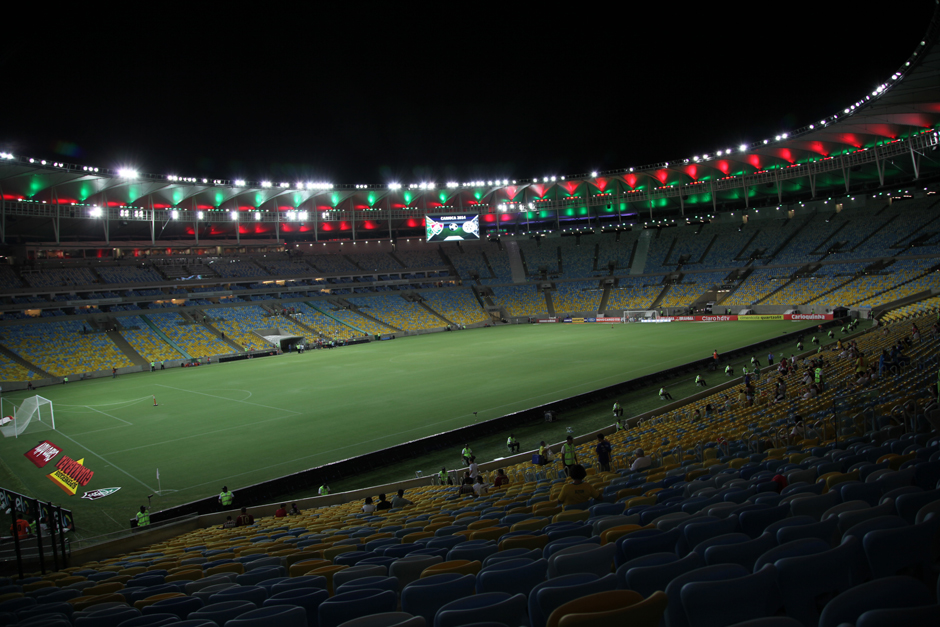
72 hours in Rio de Janeiro: Paulo Cézar
Sixty-five year-old Paulo “Caju” Cézar is one of Brazil’s greatest heroes and a model for the “Brasilian Dream”. Growing up in one of Rio de Janeiro’s many favelas, the footballer was part of the seleçao that won the World Cup in Mexico 1970. We met Caju for dinner in the Gavea district at the home of Brazil’s leading bossa nova reformer, Vinicius Cantuária. Photos by Luci Lux.
Brazil today is a country divided. And nowhere is this division more palpable than in the cultural capital Rio de Janeiro. There, in the hilly tropic idyll, rich and poor live side by side. They share the same beaches, dance to the same rhythms, and are watched over by the same monolithic Christ the Redeemer. But they live drastically different lives. Since being awarded this year’s FIFA World Cup and the 2016 Summer Olympics, the appalling differences between rich and poor and extremely wasteful spending on public projects have sparked violent mass protests in South America’s largest economy.
In the second part of our extended investigation which saw Electronic Beats travel to Rio De Janeiro to hear preeminent cultural ambassadors explain the current state of affairs in their own words, former world class footballer Paulo Cézar gets angry with the Brazilian government over dinner at the house of singer Vinicius Cantuária. To read the rest of our Brazil story, go here: part one, part three.
This year could and should have been a triumph for Brazil. But there is no reason to celebrate. The World Cup will direct the world’s attention to our country, of course. But if you want to know my honest opinion, I think that Brazil has missed a great opportunity to present itself as a progressive country to the world. This is especially embarrassing as Brazil for many still is one of the world’s leading football nations. The way the government has spent insane amounts of money to build the most modern stadiums in the world while ignoring the country’s serious problems—corruption, failing healthcare and fucked up education. My position is crystal clear in this regard. I was born and raised in a favela. I know the bad sides of the system, I know how it is when you are refused entry to a school or to university just because you’re from a poor family. You know, keeping the prices for public transport low would have been a signal for the future, but instead they raise the prices, as well as for gas and food. The recent violent riots have shown the amount of anger that the poor have accumulated and you don’t need a weatherman to know that everything will get way worse during the tournament, or on the road to the Olympics here in 2016. The government is afraid already. Not since the military government has the country seen such an outburst of violence against the state. And, I repeat myself, it will get so much worse.

Maracaña football stadium.
The absurd thing here is that football in the past has more than once successfully served as a catalyst to channel people’s aggressions into something positive. Instead, the stage that has been set up to celebrate football will for sure be used to televise an attempted revolution on the streets. And the worst thing is the people cannot even afford to attend the matches because the ticket prices are ridiculously high. They are more expensive than Wimbledon. FIFA has sacrificed the democratic idea behind the game: the idea that football is for everybody. Take for instance the refurbished Maracanã stadium in Rio that used to have a capacity of 200,000 for general admission. Now it seats barely 75,000 fans. They turned a people’s sport into something elite. Even normal league games are insanely overpriced. You pay fifty or more real for a normal ticket, which is a lot if you compare it to the minimum income of 724 real per month. If you attend a normal game nowadays you will be sitting in an almost empty stadium. And there’s another reason why Brazilian football is currently going down: the standard is watered-down. European clubs hires all the good Brazilian players. Almost the same can be said about the national team, the seleçao: under national coach Luiz Felipe Scolari, the team is playing a particularly unattractive, almost German style. There is no finesse in the Brazilian game anymore. It’s become athletic instead of playful, all forseeable long passes and tall attackers trying to hammer the ball in the net. Don’t get me wrong: the Germans nowadays, they play like Brazil used to play. They probably just need a bit more luck. I wouldn’t be surprised if Germany wins the World Cup in Brazil. ~
This text first appeared in Electronic Beats Magazine N° 37 (1, 2014). Read the full issue on issuu.com or in the embed below.
Published June 13, 2014. Words by Max Dax & viniciuscantuari.
